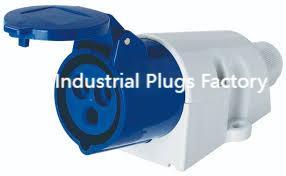In today’s fast-paced industrial world, choosing the right power connection components can significantly impact efficiency and safety. A trusted Industrial Plug Factory can supply reliable, standardized, and high-performance solutions tailored for different working environments. By understanding the essential features and best practices in selecting these components, businesses can ensure seamless operation and reduced downtime.
The importance of quality in industrial power systems
Industrial power connections endure heavy usage and sometimes harsh conditions. Whether in manufacturing plants, construction sites, or logistics hubs, these components must handle significant electrical loads while maintaining secure contact. Poor-quality connectors can lead to overheating, voltage drops, or even dangerous failures. Selecting high-grade products designed for specific operational needs ensures that equipment performs optimally and remains safe for operators.
Materials and construction standards
Durability is determined by both design and the materials used. Robust housings, corrosion-resistant metals, and impact-tolerant shells extend the life of the connectors. Internal contacts should be made from conductive metals that resist wear and maintain low resistance over time. Attention to insulation quality is equally important, as it prevents electrical leakage and protects users in challenging conditions.
Installation considerations for safety and efficiency
Correct installation practices greatly influence performance. Ensuring proper alignment, secure fastening, and correct torque during connection can prevent loose contacts that cause overheating or failure. Where appropriate, protective covers or locking systems should be employed to shield connectors from dust, moisture, and accidental disconnection. Consistent installation methods across a facility also make maintenance simpler and faster.
Maintenance to extend service life
Routine checks are vital to spot wear or damage before it leads to costly repairs. Inspecting for corrosion, cracked insulation, or worn contacts should be part of a regular maintenance schedule. Cleaning connectors with approved solutions and replacing damaged parts promptly helps maintain reliable performance. Documenting maintenance activities ensures compliance with safety standards and supports long-term operational stability.
Adapting to evolving industrial needs
Technological advancements in automation, robotics, and renewable energy sectors have created a need for more specialized connection solutions. Modern designs may include enhanced sealing for extreme environments, higher current capacities, or compatibility with smart monitoring systems. Staying informed about these developments helps businesses choose products that not only meet current demands but also allow for future upgrades without extensive retrofitting.
Balancing cost, safety, and performance
While cost is always a consideration, opting for cheaper, low-quality components can lead to downtime, increased maintenance, and safety risks. A well-considered investment in quality ensures longer service life and consistent performance. Evaluating total cost of ownership, rather than just the initial purchase price, provides a clearer picture of the true value of a product.
Reliable industrial power connections are the backbone of safe, efficient, and modern operations. Careful attention to product selection, installation, and maintenance ensures that electrical systems function smoothly across diverse environments. For more information and product options, visit www.nante.com/product/ .



